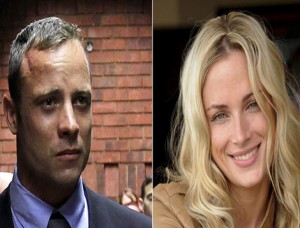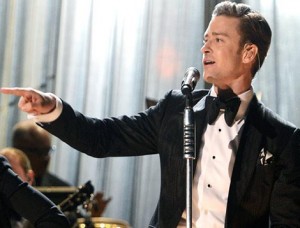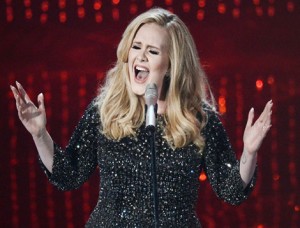Finally an apology from RFU
It was desperately belated, but after weeks of in-fighting and blood-letting, accusations and revelations, the RFU finally reached out to the English rugby public and said sorry for the World Cup debacle.
After a meeting of the union’s management board at Twickenham, at long, long last there was a positive attempt to take control of a desperate situation, show a semblance of leadership and take the first steps towards repairing the untold damage.
After far too long spent arguing among themselves and trying their utmost to hide the state they were in, the governing body presented a humble, contrite side.

There had been resignations — of Martin Johnson, of attack coach Brian Smith and of acting chief executive Martyn Thomas. There had been shocking revelations in the World Cup reports which were politically leaked last week.
As recently as Tuesday, Thomas had called for the RFU’s disciplinary officer, Judge Jeff Blackett, to resign, while Mike Tindall, having been thrown out of the Test squad and swiftly reinstated, slammed the union. All and sundry had taken shots at Rob Andrew.
So this was progress. It was a start, a tentative sign that, from ‘the darkest days’ for the English game, there can be a revival.
So many big decisions still have to be made, from the appointment of a chief executive to the recruitment of a head coach. The RFU still lack unity of purpose and a strong, settled executive structure but they at least started to show a willingness to confront their problems, admit their many mistakes and lead a recovery.
First up was Stephen Brown. Officially, until now, he was the chief financial officer, who had arrived at the RFU only in June. In light of Thomas’s sharp exit on Tuesday night, Brown suddenly found himself in the glare as acting chief executive. But he set a positive tone for what was to follow, with an apology and plenty of honesty.
‘The most important thing I can say on behalf of the RFU is to make an apology to the fans, to the clubs and everyone involved in rugby — everyone who loves rugby — for the performance in the World Cup and surrounding events,’ he said. ‘Fundamentally, we have let ourselves down as a sport and as a team. We’ve let the sport of rugby down.
‘The standards of our performance and our behaviour were below what we would expect, as was our preparation. We had a lot of off-pitch disciplinary problems which have attracted a lot of negative coverage. We need to fix this going into 2015 and going into the next round of games.’
Ian Metcalfe struck a similarly humble tone. The board member who doubles as chairman of the Professional Game Board first of all expressed regret about the leaking of reports which were supposed to remain confidential. But then he set about showing solidarity with England fans who have felt so betrayed.
‘It’s quite strange to say I hope we’ve hit rock bottom, but I hope things can’t get any worse,’ he said. ‘A lot of things have gone wrong this year and could have been dealt with better. Step by step we have to address those issues and work our way out of them. We’ve got a lot of work to do.
‘In the last 11 months I have been on the board and there has been a sense of things spiralling out of control. We’ve made a lot of mistakes — I’ve made a lot of mistakes and participated in decisions that, with hindsight, I regret. I have looked at my role and wondered if I should resign but I felt that, with the benefit of the experience of everything that has happened, we can move on.’
In an attempt to add a personal note, Metcalfe went on: ‘I’ve been involved in the game since I was 11 years old. My father-in-law played for England in the 50s, our son played for England 16 group and England 18 group, and I played a bit too. Every bit of what has happened in the last 11 months has hurt me as much as it has hurt everyone else.
‘I understand the pain the players have felt. I understand the pain the coaches have felt. Martin Johnson is a personal hero, an icon. I was there on November 22, 2003 (when England won the World Cup).
‘And I can feel the pain of all the fans out there — everyone who plays for Bagshot Vipers 2nd XV on a Saturday afternoon, who just want England to do well — and, of course, all our commercial partners.’
Metcalfe outlined the board’s plans, from the broad structure for the England management to an independent review of the elite rugby department and inquests into everything from sports science to fitness preparation of players. But he struck a chord when he returned to the soul of the game and the standards the union should expect.
‘We at the RFU need to make the players fully aware of the importance of adhering to core values when representing England — to help them understand what it is like to be an England rugby player 24/7, 365 days a year,’ he said. ‘They represent the rose on the jersey, which millions of us would like to wear. You don’t impose codes of conduct, it seems to me. The players have to be mature enough to develop them for themselves’
There were occasional lapses into management-speak, but mostly there was something encouraging and convincing about the words and the tone.
At one stage, Metcalfe claimed ‘It’s not all broken’ and, after this attempt to reclaim control in a moral and organisational sense, he may just have a point.
It was a shame it had taken so long to reach a point of honesty and straight talking, but this be the moment the revival began.








